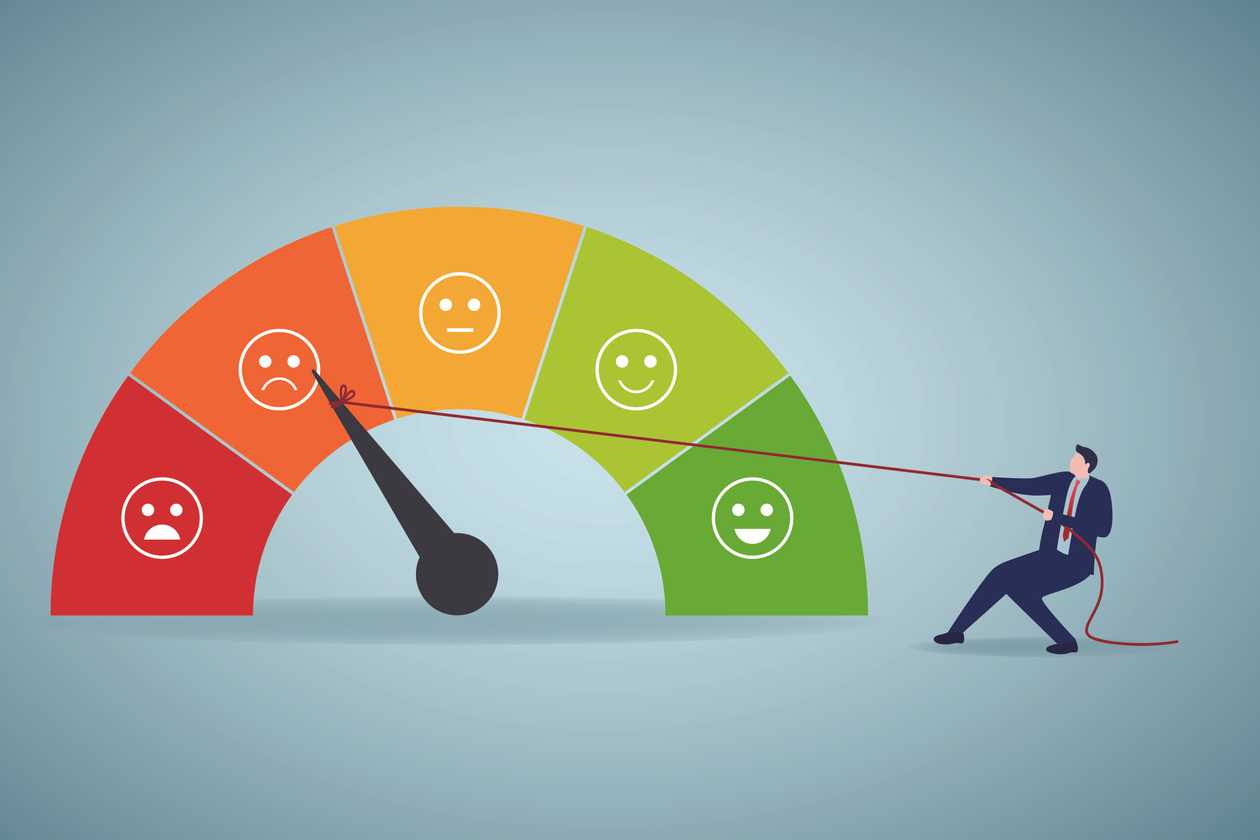Home>Finance>How Much Will My Credit Drop After Buying A Car


Finance
How Much Will My Credit Drop After Buying A Car
Modified: March 6, 2024
Find out how buying a car can impact your credit score. Understand the financial implications and learn how to manage your finances wisely.
(Many of the links in this article redirect to a specific reviewed product. Your purchase of these products through affiliate links helps to generate commission for LiveWell, at no extra cost. Learn more)
Table of Contents
Introduction
Buying a car is an exciting milestone in life, but it’s important to understand the financial implications that come with it. One question that often arises is, “How much will my credit drop after buying a car?” Your credit score plays a crucial role in your financial well-being, affecting your ability to secure loans, mortgages, and even job opportunities. It’s natural to be concerned about the impact a new auto loan may have on your credit. In this article, we will delve into the factors that can influence your credit score after purchasing a car and provide strategies to minimize any potential credit score drop.
Before we dive into the details, it’s essential to have a basic understanding of how credit scores work. Your credit score is a numerical representation of your creditworthiness, ranging from 300 to 850. The higher your credit score, the more likely you are to be approved for credit at favorable terms. Credit reporting agencies, such as Equifax, Experian, and TransUnion, monitor and collect information about your credit behavior, including your payment history, credit utilization ratio, length of credit history, types of credit, and recent credit inquiries.
When you buy a car, it’s common for lenders to pull your credit report to assess your creditworthiness and determine the interest rate they will offer you. This is known as a hard inquiry or hard pull, which can have a temporary impact on your credit score. However, the impact of a new auto loan on your credit score is not solely determined by the credit inquiry; other factors come into play as well.
Factors Affecting Credit Score
Several factors can influence your credit score, and understanding them will help you assess the potential impact of buying a car. Here are some key factors that credit reporting agencies consider:
- Payment History: Your payment history is one of the most significant factors in determining your credit score. It reflects how consistently you make your payments on time. Late payments, defaults, or bankruptcies can significantly lower your credit score.
- Credit Utilization Ratio: This ratio compares the amount of credit you’re using to the total credit available to you. Utilizing a high percentage of your available credit can negatively impact your credit score. When you finance a car, it increases your credit utilization ratio, potentially affecting your score.
- Length of Credit History: The length of time you’ve had credit accounts also plays a role in your credit score. A longer credit history demonstrates stability and responsible credit management. If you’re just starting to build credit, a new auto loan may impact your score more than if you have an established credit history.
- Types of Credit: Having a diverse mix of credit accounts, such as credit cards, loans, and mortgages, can positively impact your credit score. Adding a new auto loan to your credit mix may have a slight impact, especially if you don’t have other installment loans.
- Recent Credit Inquiries: When you apply for credit, it triggers an inquiry on your credit report. Multiple inquiries within a short period can indicate a higher risk and potentially lower your credit score. However, credit scoring models are designed to recognize when a consumer is shopping for the best rates for a specific loan, such as a car loan. In these cases, multiple inquiries within a short timeframe are typically treated as a single inquiry.
Considering these factors, it becomes clear that buying a car can have an impact on your credit score. However, it’s important to note that the impact is usually temporary, and with responsible credit management, your score can recover and even improve over time.
Understanding Credit Inquiries
When you apply for credit, whether it’s for a car loan or a credit card, the lender will typically request a copy of your credit report from one or more credit reporting agencies. This inquiry, also known as a credit check, allows lenders to assess your creditworthiness and make informed decisions about extending credit to you. However, not all credit inquiries have the same impact on your credit score.
There are two types of credit inquiries: hard inquiries and soft inquiries.
Hard Inquiries: A hard inquiry occurs when you apply for new credit, such as a car loan or a mortgage. It involves a thorough review of your credit history and has the potential to impact your credit score. Hard inquiries are visible to other lenders and remain on your credit report for up to two years. Too many hard inquiries within a short period can raise concerns for lenders and negatively affect your credit score.
Soft Inquiries: A soft inquiry occurs when you check your own credit report or when a lender checks your credit as part of a pre-approved offer. Unlike hard inquiries, soft inquiries do not impact your credit score and are not visible to other lenders. Examples of soft inquiries include background checks, credit monitoring, and pre-qualified credit offers.
It’s important to be aware that when you shop for a car loan, multiple inquiries from different lenders within a short timeframe are typically treated as a single inquiry. This allows you to compare rates and terms without significantly impacting your credit score. The specific timeframe varies, but typically it’s around 14 to 45 days, depending on the credit scoring model used.
While hard inquiries may temporarily lower your credit score, the impact is typically minor and short-lived. Over time, the effect of these inquiries diminishes, and responsible credit behavior can help improve your credit score.
Now that we have a better understanding of credit inquiries, let’s explore the potential impact of a new auto loan on your credit score.
Impact of a New Auto Loan on Credit Score
When you finance the purchase of a car, it involves taking out an auto loan from a lender. This new loan can have both positive and negative effects on your credit score.
First, let’s discuss the potential negative impact. When you apply for an auto loan, the lender will perform a hard inquiry on your credit report to assess your creditworthiness. As mentioned earlier, a hard inquiry can temporarily lower your credit score by a few points. However, credit scoring models are designed to take into account loan shopping behavior, so multiple auto loan inquiries within a short timeframe are typically treated as a single inquiry.
In addition to the credit inquiry, a new auto loan can also impact your credit utilization ratio. Your credit utilization ratio measures how much credit you are using compared to your total available credit. Taking on a new auto loan increases your total debt, potentially raising your credit utilization ratio. If you have a high credit utilization ratio, it can negatively affect your credit score. It’s recommended to keep your credit utilization below 30% to maintain a healthy credit score.
On the other hand, there are positive aspects to consider as well. When you make timely payments on your auto loan, it demonstrates responsible credit behavior and can help improve your credit score over time. Having an installment loan in your credit mix can also positively impact your credit score by showing lenders that you can manage different types of credit.
It’s important to note that the impact of a new auto loan on your credit score can vary depending on your overall credit profile and history. If you have a long and positive credit history, the impact may be less significant compared to someone with a limited credit history. Similarly, if you have a higher credit score, the impact may be less noticeable.
Now that we have an idea of how a new auto loan can impact your credit score, let’s explore how you can calculate the potential credit drop.
Calculating the Potential Credit Drop
Calculating the exact impact of a new auto loan on your credit score can be challenging as credit scoring models are complex and proprietary. However, we can estimate the potential credit drop based on the factors we discussed earlier.
One significant factor to consider is the credit inquiry. As mentioned, a single hard inquiry typically has a minimal impact of a few points on your credit score. If you have multiple inquiries from different auto lenders within a short timeframe, it may still be treated as a single inquiry, minimizing the impact on your score. The actual impact can vary based on your overall credit history and profile.
Another factor to consider is your credit utilization ratio. Taking on a new auto loan will increase your total debt and may raise your credit utilization ratio. The extent of the impact depends on the amount financed and your existing credit limits. For example, if you have a high credit limit and the auto loan amount is relatively small, the impact on your credit utilization ratio may be minimal. However, if the auto loan amount is significant and your credit limits are lower, it may have a more noticeable impact.
It’s important to note that the potential credit drop from a new auto loan is typically temporary. As you make on-time payments and reduce your outstanding debt, your credit score can rebound and even improve over time.
Keep in mind that these estimations are subjective, and the best way to assess the potential credit drop is to monitor your credit score before and after the purchase of a car. Many credit monitoring services provide regular updates on your credit score, allowing you to track any changes and take proactive steps to improve your score, if necessary.
Now that we have explored the factors and potential impact of a new auto loan on your credit score, let’s explore strategies to minimize any negative impacts.
Strategies to Minimize Credit Score Impact
While it’s natural for your credit score to be impacted when you buy a car, there are several strategies you can implement to mitigate the negative effects and manage your credit responsibly. Here are some key strategies to consider:
- Shop for the best rates within a short timeframe: As we mentioned earlier, multiple inquiries for an auto loan within a specific timeframe are typically treated as a single inquiry. Take advantage of this and shop around for the best rates and terms. Limit your loan applications to a concentrated period, typically 14 to 45 days, to minimize the impact on your credit score.
- Know your credit profile: Before applying for an auto loan, it’s crucial to be aware of your credit standing. Obtain a copy of your credit report from each of the major credit reporting agencies and review it for any errors or discrepancies. Disputing and correcting inaccuracies can help improve your credit score.
- Consider a larger down payment: Making a larger down payment on your car purchase can help reduce the loan amount and your credit utilization ratio. By lowering your credit utilization, you can minimize the impact on your credit score.
- Make on-time payments: One of the most effective ways to minimize any negative impact on your credit score is to make your auto loan payments on time. Payment history has a significant influence on your credit score, and consistent, timely payments can help build a positive credit history.
- Keep an eye on your credit utilization: As we mentioned earlier, your credit utilization ratio plays a role in your credit score. Aim to keep your credit utilization below 30% by managing your credit wisely. If possible, pay down existing debt or keep your credit card balances low to offset the increase in debt from the auto loan.
- Continue managing your other credit accounts: While the new auto loan may impact your credit score, it’s important to continue managing your other credit accounts responsibly. Make timely payments on your credit cards, loans, and mortgages to demonstrate your overall creditworthiness.
- Monitor your credit score: Regularly monitor your credit score to track any changes and ensure the accuracy of the information reported. Stay vigilant for any signs of identity theft or fraudulent activity. By being proactive, you can address any issues promptly and protect your creditworthiness.
By implementing these strategies, you can minimize the potential credit score impact of buying a car and maintain a healthy credit profile. Remember that responsible credit management is key to building and maintaining a strong credit score.
Now that we’ve explored strategies to minimize the impact on your credit score, let’s wrap up with a summary of the key points.
Conclusion
Buying a car is an exciting milestone, but it’s important to understand how it can impact your credit score. While there may be a temporary drop in your credit score after purchasing a car, there are strategies you can employ to minimize the negative effects and maintain a healthy credit profile.
Factors such as credit inquiries and your credit utilization ratio can influence your credit score. It’s crucial to be aware of these factors and how they may be affected by a new auto loan. However, it’s important to remember that the impact is typically temporary, and with responsible credit management, your score can recover and even improve over time.
Strategies such as shopping for the best rates within a short timeframe, knowing your credit profile, making a larger down payment, and making on-time payments can all help mitigate the impact on your credit score. Additionally, monitoring your credit utilization, continuing to manage your other credit accounts, and regularly monitoring your credit score can further protect and improve your creditworthiness.
Remember, every individual’s credit situation is unique, and the impact of a new auto loan on your credit score may vary. By being proactive and implementing these strategies, you can minimize any potential credit score drop and maintain a healthy credit profile.
So, if you’re considering buying a car, don’t let concerns about your credit score hold you back. Take the necessary steps to educate yourself, plan wisely, and manage your credit responsibly. With the right approach, you can drive off with your new car and maintain a positive credit journey.














